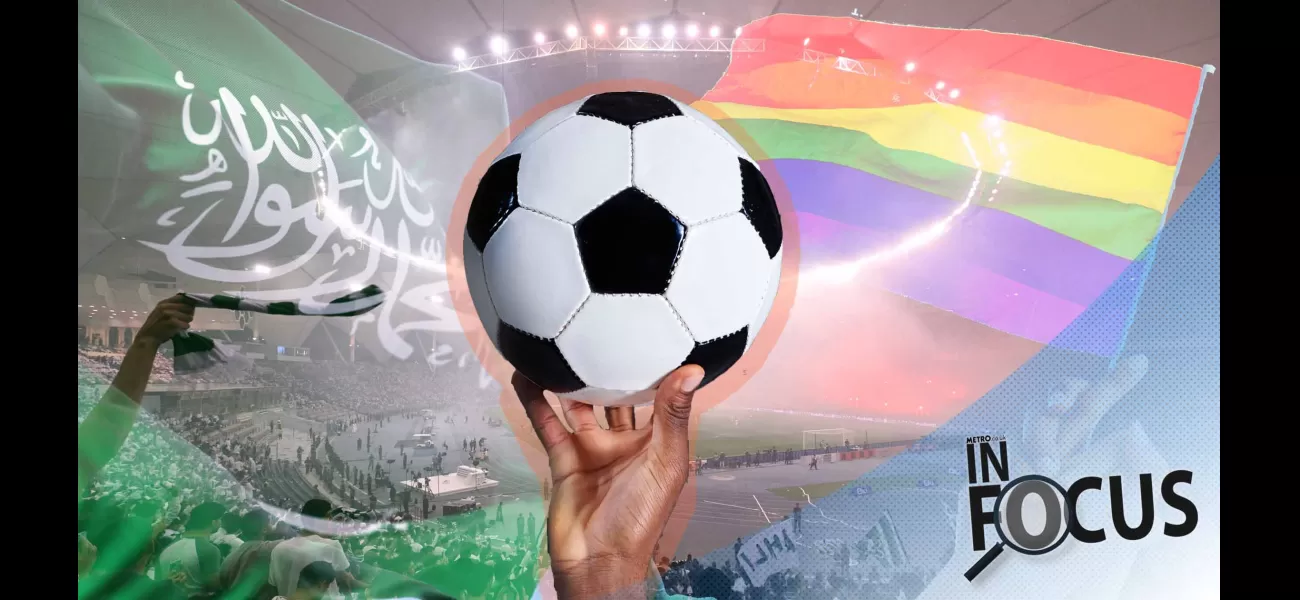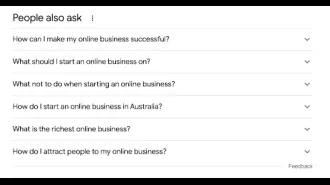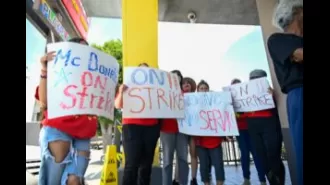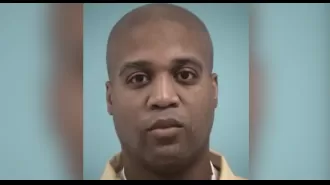Hosting the World Cup in Saudi Arabia sends a message that LGBTQ+ fans don't count.
Saudi Arabia is only country vying to host 2034 FIFA World Cup.
November 5th 2023.

Arthur Weber, a 25-year-old freelance writer living in London, is the captain and player of TRUK United FC, Europe's first team of all trans men. When he read the news that Saudi Arabia is expected to host the 2034 FIFA World Cup, his initial reaction was one of outrage.
"I initially used language not suitable to print," he says. "The message FIFA is sending to football fans and players like me is all too clear: we don't matter and money will win over any commitment to advancing equality in football. I also believe it tells the LGBTQ+ community in Saudi Arabia that FIFA thinks the treatment of them by their government is OK, as long as the government pays FIFA a lot of money."
At present, Saudi Arabia is the only contender for hosting the 2034 World Cup, after Australia pulled out due to lack of votes from FIFA's 211 federations. Newcastle United's manager Eddie Howe has expressed his approval, given the team has been using training camps in Riyadh and Jeddah since October 2021. Yet, the news of Saudi Arabia hosting the tournament has brought renewed attention to the nation's lack of LGBTQ+ rights.
Under Sharia law, same-sex sexual acts are punishable by death or jail and gender-affirming surgery is banned. There is also no law explicitly against trans people, though anyone caught cross-dressing can be incarcerated.
Felix Jakens, the head of Priority Campaigns and Individuals at Risk at Amnesty International UK, believes that the intention behind Saudi Arabia hosting the 2034 World Cup is to mask their human rights abuses.
"Anyone familiar with Saudi sports washing shouldn't be at all surprised by this turn of events. We've seen Saudi Arabia become increasingly ambitious in its use of sport to try to rebrand itself, while at the same time, the Saudi authorities have been pursuing an utterly ruthless crackdown on human rights," he says.
In light of the news, Arthur Weber will not be tuning into the World Cup if it is held in Saudi Arabia. He believes this is not only a violation of FIFA's commitment to respecting human rights, but also sends a message to football fans and players that their values don't matter in the face of money.
Arthur Webber, a 25-year-old freelance writer and the captain and player of TRUK United FC (Europe’s first football team of all trans men) was taken aback when he read the news of Saudi Arabia potentially hosting the World Cup in 2034. When asked how he felt, Arthur said that the message FIFA, football’s governing body, was sending to people like him was all too clear. “I initially used language not suitable to print,” he said, recalling his initial reaction. “I feel like it tells LGBTQ+ fans that ultimately, we don’t matter and that money will win over any commitment to advancing equality in football. I also believe it tells the LGBTQ+ community in Saudi Arabia that FIFA thinks the treatment of them by their government is OK, as long as they pay FIFA a lot of money.”
Although FIFA has yet to officially announce the host of the 2034 World Cup, Saudi Arabia is currently the only contender after Australia pulled out following concerns they wouldn’t get enough votes from FIFA’s 211 federations across the world. Newcastle United’s manager, Eddie Howe, has given his approval of the news, saying it was “really good”, and that he would expect a World Cup in Saudi Arabia to be well organised, as he and his team have previously travelled there.
On the other hand, the news of Saudi Arabia potentially hosting the World Cup has sparked renewed attention on the nation’s human rights, including their lack of LGBTQ+ rights. According to Equaldex, queer Saudis face the death penalty or jail under Sharia law if they engage in same-sex sexual acts, and anyone caught ‘cross-dressing’ can be jailed. Gender-affirming surgery is also banned.
The kingdom had long made its hopes to stage the World Cup clear, with its de facto leader, Crown Prince Mohammed bin Salman, announcing his offer only minutes after FIFA kicked off the bidding process - not a big surprise, given football is Saudi’s most popular sport. However, according to Amnesty International, under Bin Salman, the authorities have also jailed peaceful activists, carried out record numbers of executions and women suffer routine discrimination.
Arthur has no plans to tune into the World Cup if it’s held in Saudi, and Amnesty International’s head of priority campaigns and individuals at risk, Felix Jakens, has accused the Gulf nation of “sports washing” - an attempt to use lavish athletic celebrations as a smoke-screen. “Anyone familiar with Saudi sports washing shouldn’t be at all surprised by this turn of events,” he said.
FIFA’s Bidding Regulations, which were developed with the UN’s human rights agency, state that countries offering to host the 2030 or 2034 World Cups had to commit to “respecting internationally recognised human rights”. This includes FIFA officials evaluating human rights risks in the nation and contractual obligations for all organisers to respect them. The host country’s government and city authorities must also document their commitment to ensuring that hosting the tournament would not “involve adverse impacts on internationally recognised human rights”.
However, Saudi’s human rights record is concerning, as men overwhelmingly control women’s rights, freedom of expression is muffled and being gay is a crime. This has raised a wave of concern among LGBTQ+ advocates. Therefore, if Saudi Arabia does host the World Cup, it could be seen as FIFA sending a message that money is more important than human rights.
"I initially used language not suitable to print," he says. "The message FIFA is sending to football fans and players like me is all too clear: we don't matter and money will win over any commitment to advancing equality in football. I also believe it tells the LGBTQ+ community in Saudi Arabia that FIFA thinks the treatment of them by their government is OK, as long as the government pays FIFA a lot of money."
At present, Saudi Arabia is the only contender for hosting the 2034 World Cup, after Australia pulled out due to lack of votes from FIFA's 211 federations. Newcastle United's manager Eddie Howe has expressed his approval, given the team has been using training camps in Riyadh and Jeddah since October 2021. Yet, the news of Saudi Arabia hosting the tournament has brought renewed attention to the nation's lack of LGBTQ+ rights.
Under Sharia law, same-sex sexual acts are punishable by death or jail and gender-affirming surgery is banned. There is also no law explicitly against trans people, though anyone caught cross-dressing can be incarcerated.
Felix Jakens, the head of Priority Campaigns and Individuals at Risk at Amnesty International UK, believes that the intention behind Saudi Arabia hosting the 2034 World Cup is to mask their human rights abuses.
"Anyone familiar with Saudi sports washing shouldn't be at all surprised by this turn of events. We've seen Saudi Arabia become increasingly ambitious in its use of sport to try to rebrand itself, while at the same time, the Saudi authorities have been pursuing an utterly ruthless crackdown on human rights," he says.
In light of the news, Arthur Weber will not be tuning into the World Cup if it is held in Saudi Arabia. He believes this is not only a violation of FIFA's commitment to respecting human rights, but also sends a message to football fans and players that their values don't matter in the face of money.
Arthur Webber, a 25-year-old freelance writer and the captain and player of TRUK United FC (Europe’s first football team of all trans men) was taken aback when he read the news of Saudi Arabia potentially hosting the World Cup in 2034. When asked how he felt, Arthur said that the message FIFA, football’s governing body, was sending to people like him was all too clear. “I initially used language not suitable to print,” he said, recalling his initial reaction. “I feel like it tells LGBTQ+ fans that ultimately, we don’t matter and that money will win over any commitment to advancing equality in football. I also believe it tells the LGBTQ+ community in Saudi Arabia that FIFA thinks the treatment of them by their government is OK, as long as they pay FIFA a lot of money.”
Although FIFA has yet to officially announce the host of the 2034 World Cup, Saudi Arabia is currently the only contender after Australia pulled out following concerns they wouldn’t get enough votes from FIFA’s 211 federations across the world. Newcastle United’s manager, Eddie Howe, has given his approval of the news, saying it was “really good”, and that he would expect a World Cup in Saudi Arabia to be well organised, as he and his team have previously travelled there.
On the other hand, the news of Saudi Arabia potentially hosting the World Cup has sparked renewed attention on the nation’s human rights, including their lack of LGBTQ+ rights. According to Equaldex, queer Saudis face the death penalty or jail under Sharia law if they engage in same-sex sexual acts, and anyone caught ‘cross-dressing’ can be jailed. Gender-affirming surgery is also banned.
The kingdom had long made its hopes to stage the World Cup clear, with its de facto leader, Crown Prince Mohammed bin Salman, announcing his offer only minutes after FIFA kicked off the bidding process - not a big surprise, given football is Saudi’s most popular sport. However, according to Amnesty International, under Bin Salman, the authorities have also jailed peaceful activists, carried out record numbers of executions and women suffer routine discrimination.
Arthur has no plans to tune into the World Cup if it’s held in Saudi, and Amnesty International’s head of priority campaigns and individuals at risk, Felix Jakens, has accused the Gulf nation of “sports washing” - an attempt to use lavish athletic celebrations as a smoke-screen. “Anyone familiar with Saudi sports washing shouldn’t be at all surprised by this turn of events,” he said.
FIFA’s Bidding Regulations, which were developed with the UN’s human rights agency, state that countries offering to host the 2030 or 2034 World Cups had to commit to “respecting internationally recognised human rights”. This includes FIFA officials evaluating human rights risks in the nation and contractual obligations for all organisers to respect them. The host country’s government and city authorities must also document their commitment to ensuring that hosting the tournament would not “involve adverse impacts on internationally recognised human rights”.
However, Saudi’s human rights record is concerning, as men overwhelmingly control women’s rights, freedom of expression is muffled and being gay is a crime. This has raised a wave of concern among LGBTQ+ advocates. Therefore, if Saudi Arabia does host the World Cup, it could be seen as FIFA sending a message that money is more important than human rights.
[This article has been trending online recently and has been generated with AI. Your feed is customized.]
[Generative AI is experimental.]
0
0
Submit Comment





